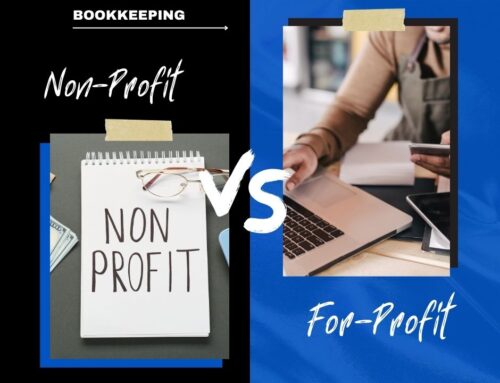In the world of business, numbers speak volumes. Effective bookkeeping is the backbone of financial stability, from startups to multinational corporations.
Bookkeeping is how businesses, entrepreneurs, and decision-makers monitor a company’s financial health and activity. Without basic bookkeeping practices, it’s easy for financial transactions and spending activities to get out of control, leading to confusion, disorganization, and loss of profit.
But what exactly is bookkeeping, and how can it make or break your business? In this guide, we dive deep into the importance of bookkeeping for small businesses, the responsibilities of a bookkeeper, how to set up a bookkeeping system in a small business, and the different bookkeeping services for small businesses.
What is Bookkeeping?
Bookkeeping is the systematic process of recording and organizing financial transactions for a business. It involves tracking income, expenses, debts, and other financial activities.
The bookkeeping or accounting process forms the foundation upon which accounting is based, helping business owners and financial experts analyze the data for better decision-making. In particular, you should understand the difference between cash and accrual accounting.
You should also know the most common accounts used by most bookkeepers, including:
Regular attention to these aspects of your finances is important to ensure your company moves in the right direction. Although you may use various reports, the three bookkeeping essentials are the balance sheet, the financial statements, and the statement of cash flows.

Bookkeeping Vs. Accounting
Bookkeeping differs from accounting because it is the critical first step in tracking all business activities. While bookkeeping provides oversight into each transaction (to catch discrepancies and correct mistakes), accounting provides a thorough financial analysis of all these numbers.
Accountants rely on bookkeeping records to analyze and advise on a business’s financial activity, health, and growth potential. In other words, a bookkeeper is the first step in ensuring your company’s financials are complete and accurate.
In contrast, a certified public accountant is your second step in knowing what the most run financial statements and records indicate so you can plan and make the right business decisions.
The Importance of Bookkeeping Process for Small Businesses
Maintaining bookkeeping tasks is essential for the stability and success of small businesses. Small business owners must stay on top of many moving pieces (including assets, liabilities, income, and expenses).

Responsibilities of a Bookkeeper
Small-business bookkeeping revolves around keeping accurate records of all financial activity. To do this, bookkeepers should be involved in daily business operations.
Some of their tasks include the following:
Bookkeeping Services for Small Businesses
Bookkeepers manage the chart of accounts, track sales, enter expenses, and generate reports for your company. They also handle account reconciliations and generate basic reports such as accounts payable and receivable.
When you launch or expand your business, you should decide who will handle your bookkeeping needs. Will that person be an employee of your company, or will you hire a part-time bookkeeper or a professional bookkeeping service?
You must hire a professional bookkeeper to handle your immediate and future needs. As you interview different professionals or companies, choose someone who can provide all your needed services.
Consider hiring a company like Navitance that offers a full range of accounting services, from bookkeeping to controllership to interim CFO services. This allows you to continue to work with that company as your business grows and changes.
Finally, you need a suitable suite of services that complement your company’s needs. Outsourced bookkeeping services offer a range of benefits, including the following:
Remember that the services provided by different bookkeepers to create financial reports can vary. Before hiring anyone to handle your books, ensure you understand the services and the costs involved.
Ask prospective bookkeepers or financial professionals how they plan to help your business in ways that drive growth and success.

Outsourced Bookkeeping at your Fingertips!
Unfortunately, the U.S. Small Business Administration reports that about half of all small businesses fail within the first five years, and 70% shut their doors within 10 years. Many of these companies go out of business due to cash flow problems or because they don’t have the right team.
For the health of your business, you need to ensure that you have the right team of professionals assisting you, including bookkeepers. Outsourcing your bookkeeping needs saves time and alleviates the hassle, labor burden, and liability of maintaining a full-time, in-house bookkeeping department.
At the same time, you benefit from their financial experience and reap the rewards of having a neutral third party reviewing your books. You can customize the services to meet your needs, including recording financial transactions, maintaining your chart of accounts, managing accounts payable and receivables, remitting payments, doing your bank account reconciliations, and more.
So, doing your bookkeeping vs. outsourcing through bookkeepers? Which is best for you?
Worry no more! When you need bookkeeping services Nationwide, we can help.
Navitance offers financial services for small businesses, nonprofits, and other organizations. In addition to bookkeeping services, we offer interim chief financial officer (CFO) services and financial restructuring services.
Contact us today to learn how we can help your business.





